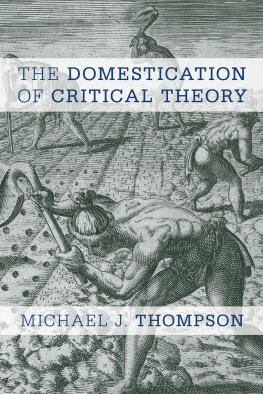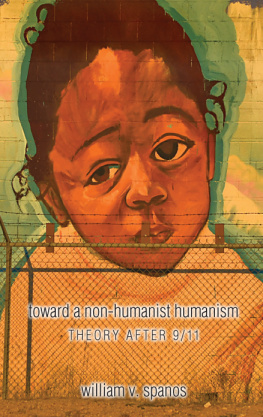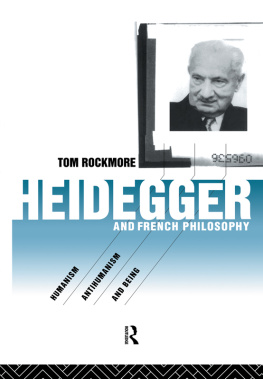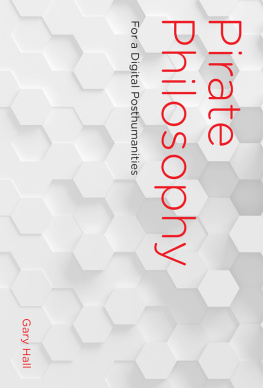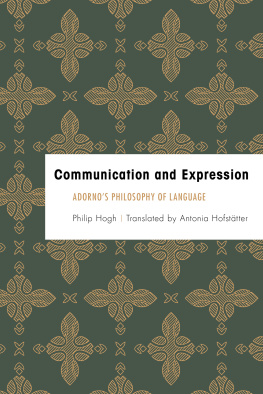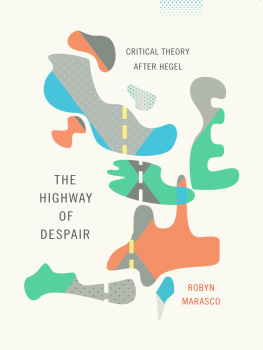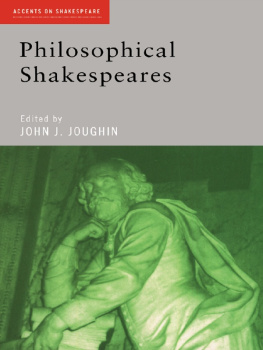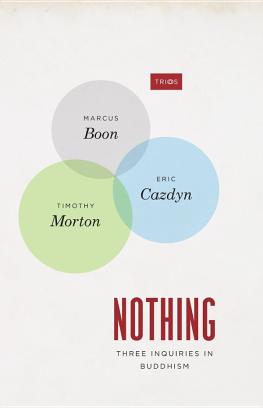Hall Sam - Shakespeares folly: philosophy, humanism, critical theory
Here you can read online Hall Sam - Shakespeares folly: philosophy, humanism, critical theory full text of the book (entire story) in english for free. Download pdf and epub, get meaning, cover and reviews about this ebook. City: New York;NY, year: 2017, publisher: Taylor and Francis;Routledge, genre: Romance novel. Description of the work, (preface) as well as reviews are available. Best literature library LitArk.com created for fans of good reading and offers a wide selection of genres:
Romance novel
Science fiction
Adventure
Detective
Science
History
Home and family
Prose
Art
Politics
Computer
Non-fiction
Religion
Business
Children
Humor
Choose a favorite category and find really read worthwhile books. Enjoy immersion in the world of imagination, feel the emotions of the characters or learn something new for yourself, make an fascinating discovery.

- Book:Shakespeares folly: philosophy, humanism, critical theory
- Author:
- Publisher:Taylor and Francis;Routledge
- Genre:
- Year:2017
- City:New York;NY
- Rating:5 / 5
- Favourites:Add to favourites
- Your mark:
- 100
- 1
- 2
- 3
- 4
- 5
Shakespeares folly: philosophy, humanism, critical theory: summary, description and annotation
We offer to read an annotation, description, summary or preface (depends on what the author of the book "Shakespeares folly: philosophy, humanism, critical theory" wrote himself). If you haven't found the necessary information about the book — write in the comments, we will try to find it.
Hall Sam: author's other books
Who wrote Shakespeares folly: philosophy, humanism, critical theory? Find out the surname, the name of the author of the book and a list of all author's works by series.
Shakespeares folly: philosophy, humanism, critical theory — read online for free the complete book (whole text) full work
Below is the text of the book, divided by pages. System saving the place of the last page read, allows you to conveniently read the book "Shakespeares folly: philosophy, humanism, critical theory" online for free, without having to search again every time where you left off. Put a bookmark, and you can go to the page where you finished reading at any time.
Font size:
Interval:
Bookmark:
Shakespeares Folly
This study contends that folly is of fundamental importance to the implicit philosophical vision of Shakespeares drama. The discourse of follys wordplay, jubilant ironies, and vertiginous paradoxes furnish Shakespeare with a way of understanding that lays bare the hypocrisies and absurdities of the serious world. Like Erasmus, More, and Montaigne before him, Shakespeare employs folly as a mode of understanding that does not arrogantly insist upon the veracity of its own claims a fools truth, after all, is spoken by a fool. Yet, as this study demonstrates, Shakespearean folly is not the sole preserve of professional jesters and garrulous clowns, for it is also apparent on a thematic, conceptual, and formal level in virtually all of his plays. Examining canonical histories, comedies, and tragedies, this study is the first to either contextualise Shakespearean folly within European humanist thought or to argue that Shakespeares philosophy of folly is part of a strand of Western philosophy, which itself reflects upon the folly of the wise. This strand runs from the philosopher-fool Socrates through to Montaigne and on to Nietzsche, but finds its most sustained expression in the Critical Theory of the mid to late twentieth-century, when the self-destructive potential latent in rationality became an historical reality. This book makes a substantial contribution to the fields of Shakespeare, Renaissance humanism, Critical Theory, and Literature and Philosophy. It illustrates, moreover, how rediscovering the philosophical potential of folly may enable us to resist the growing dominance of instrumental thought in the cultural sphere.
Sam Gilchrist Hall is a teacher of English at the British Council, Hungary, and a Visiting Instructor at the Department of British Studies, University of Debrecen.
Routledge Studies in Shakespeare
For a full list of titles in this series, please visit www.routledge.com.
7 Retheorizing Shakespeare through Presentist Readings
James ORourke
8 Memory in Shakespeares Histories
Stages of Forgetting in Early Modern England
Jonathan Baldo
9 Reading Shakespeare through Philosophy
Peter Kishore Saval
10 Embodied Cognition and Shakespeares Theatre
The Early Modern Body-Mind
Edited by Laurie Johnson, John Sutton, and Evelyn Tribble
11 Mary Wroth and Shakespeare
Edited by Paul Salzman and Marion Wynne-Davies
12 Disability, Health, and Happiness in the Shakespearean Body
Edited by Sujata Iyengar
13 Skepticism and Belonging in Shakespeares Comedy
Derek Gottlieb
14 Shakespeare, Romeo and Juliet, and Civic Life
The Boundaries of Civic Space
Edited by Silvia Bigliazzi and Lisanna Calvi
15 Shakespeare in Hate
Emotions, Passions, Selfhood
Peter Kishore Saval
16 Shakespeare and Hospitality
Ethics, Politics, and Exchange
Edited by David B. Goldstein and Julia Reinhard Lupton
17 Shakespeare, Cinema, Counter-Culture
Appropriation and Inversion
Ailsa Grant Ferguson
18 Shakespeares Folly
Philosophy, Humanism, Critical Theory
Sam Gilchrist Hall
First published 2017
by Routledge
711 Third Avenue, New York, NY 10017
and by Routledge
2 Park Square, Milton Park, Abingdon, Oxon OX14 4RN
Routledge is an imprint of the Taylor & Francis Group, an informa business
2017 Taylor & Francis
The right of Sam Gilchrist Hall to be identified as author of this work has been asserted by him in accordance with sections 77 and 78 of the Copyright, Designs and Patents Act 1988.
All rights reserved. No part of this book may be reprinted or reproduced or utilised in any form or by any electronic, mechanical, or other means, now known or hereafter invented, including photocopying and recording, or in any information storage or retrieval system, without permission in writing from the publishers.
Trademark notice: Product or corporate names may be trademarks or registered trademarks, and are used only for identification and explanation without intent to infringe.
Library of Congress Cataloging-in-Publication Data
Names: Hall, Sam, 1988, author.
Title: Shakespeares folly: philosophy, humanism, critical theory / by Sam Hall.
Description: First edition. | New York: Routledge, 2016. | Series: Routledge studies in Shakespeare; 18 | Includes bibliographical references and index.
Identifiers: LCCN 2016007637
Subjects: LCSH: Shakespeare, William, 15641616Criticism and interpretation. | Shakespeare, William, 15641616Philosophy. | Folly in literature. | Wisdom in literature. | Paradox in literature. | Truth in literature. | Humanism in literature.
Classification: LCC PR3001 .H35 2016 | DDC 822.3/3dc23
LC record available at https://lccn.loc.gov/2016007637
ISBN: 978-1-138-65522-5 (hbk)
ISBN: 978-1-315-62263-7 (ebk)
Typeset in Sabon
by codeMantra
And I gave my heart to know wisdom, and to know madness and folly: I perceived that this also is vexation of spirit.
(KJV, Ecclesiastes, 1. 17)
Shakespeares fascination with folly runs throughout his career and is as apparent in his histories and tragedies as it is in his comedies. And since it can be discerned on a thematic, conceptual and formal level in virtually every play, folly is not the sole preserve of professional jesters, such as Touchstone. Rather, the paradoxical wisdom of folly is central to the elusive philosophical vision of Shakespearean drama. Indeed, folly proves to be an essential component of Shakespeares fabled Negative Capability the way in which his plays, according to Keats, inculcate a way of thinking that capable of being in uncertainties without any irritable reaching after fact and reason.
Shakespeares Folly is the first study of its kind to read Shakespeares interest in folly in the light of some of the seminal works of European humanism Erasmuss Praise of Folly (1511), Mores Utopia (1516) and Montaignes Essays (1580). Situating Shakespearean folly in the intellectual fervent of Renaissance humanism, I suggest, enables us to perceive more presciently the ways in which folly provides a critical space in which the contradictions and dangers of reason can be assayed. In fact, as shows, the idea that folly provides a space for critical reflection is already apparent in Platos Symposium, in which Alcibiadess image of the Silenus figurine expresses the wisdom of the outwardly foolish Socrates. I map the development of this idea from classical antiquity through to Erasmus and Montaigne and on to Shakespeare, who, in The Merchant of Venice, dramatises an outwardly unpromising casket with a beautiful image inside it; ultimately, this study suggests, the Casket Test implies that wonder can be experienced through reflection on aesthetic semblance alone.
However, as the interpretations of selected histories, comedies and tragedies, with which the second half of this study is concerned, make clear, Shakespeare was no blithe aesthete, and it is primarily through the discourse of folly that he stages the problematic relation of literature to reality. This can be discerned in Shakespeares critique of historiography in the Second Shakespearean comedy uses folly to express a scepticism about the serious world more radical than even Nicholas of Cusas docta ignorntia. Building on the critique of stultifying poetic commonplaces and musty narrative tropes apparent in the comedies, this study concludes with an analysis of
Next pageFont size:
Interval:
Bookmark:
Similar books «Shakespeares folly: philosophy, humanism, critical theory»
Look at similar books to Shakespeares folly: philosophy, humanism, critical theory. We have selected literature similar in name and meaning in the hope of providing readers with more options to find new, interesting, not yet read works.
Discussion, reviews of the book Shakespeares folly: philosophy, humanism, critical theory and just readers' own opinions. Leave your comments, write what you think about the work, its meaning or the main characters. Specify what exactly you liked and what you didn't like, and why you think so.

